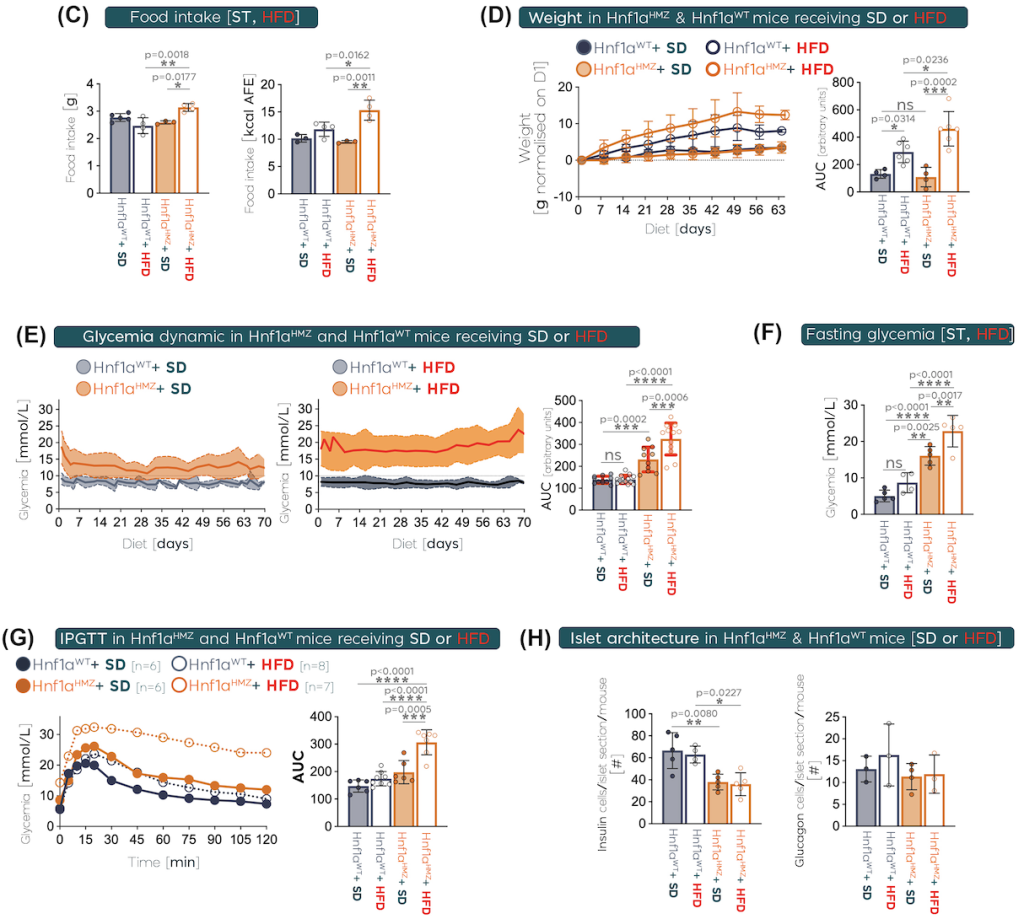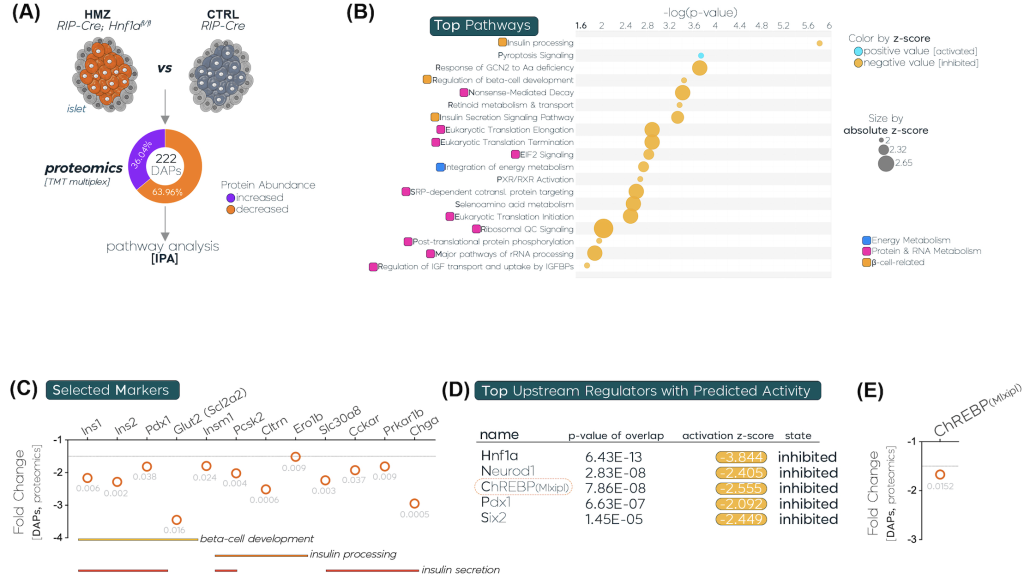Congratulations Shayla, Thomas and Lucas! Our work on the impact of diet challenges on Hnf1a – deficient beta-cells is now published in Acta Physiologica!

Here, we designed a pilot study in which we assess, in vivo, the impact of different diet regimens on the functionality of Hnf1a-deficient beta-cells. For this purpose, we used a transgenic mouse model allowing Hnf1a mutation specifically and exclusively in beta-cells, thus being able to exclude the interference from other organs or cell populations bearing the mutation. Briefly, we showed that Hnf1a mutation restricted to the beta-cell compartment causes mild hyperglycemia regardless of sex, and the underlaying disfunction is highly sensitive to dietary cues. Exposure to high fat diet further exacerbates the glucose regulation phenotype, while caloric restriction completely restores normoglycemia.

Moreover, we identified changes in Hnf1a-defficient beta-cells proteome landscape, involving conserved critical regulators of metabolic and growth processes, which could putatively explain the strong dietary regimens’ effects, such as ChREBP (Mlxipl).

Continue your reading here:
Caloric Restriction Substantially Improves Glucose Regulation in Mice With Hnf1a‐Deficient Beta‐Cells
Authors: Sharmine S, Legøy TA, Unger L, Ghila L#, Chera S#
Acta Physiol (Oxf). 2025 Dec;241(12):e70121. PMID: 41165340
DOI information: 10.1111/apha.70121
